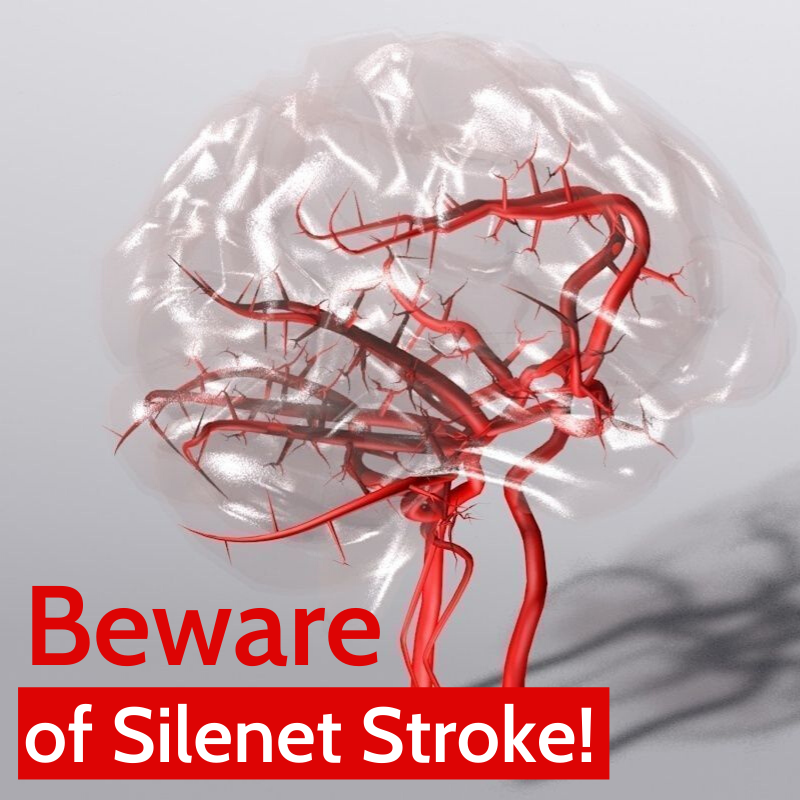Researchers have recently found that silent strokes are more common than stroke in aged people. Silent strokes are generally experienced in people with age around 65 years or more and those who have undergone surgery.
The study, published in the journal of The Lancet, found that around half of 50 million people above 65 years and gone through non-cardiac surgery are expected to suffer a stroke.
A silent stroke is difficult to identify as it disturbs that part of the brain that doesn’t control any vital functions such as moving or speaking. Silent stroke doesn’t show any symptoms as it occurs when the supply of blood to the part of the brain instantly breaks off. The general way to detect silent stroke is by MRI (magnetic resonance imaging) or CT (X-ray computed tomography) scan.
What is Silent Stroke?
A silent stroke is also known as silent cerebral infarction(SCI) is a stroke is subtle and doesn’t show any bodily symptoms related to stroke. Hence it is also called silent because it occurs unknowingly. The silent stroke is risky for the patients in the future as it interrupts blood flow and causes damage to the brain. Many people are not even aware of experiencing silent stroke until there is some severe brain damage.
What causes Silent Stroke?
The causes are not clearly defined. But today’s sedentary and comfortable lifestyle is a major reason for strokes. The noticeable risk factors include a person suffering from high blood pressure, diabetes, high cholesterol levels, atrial fibrillation, cerebrovascular disease, and blood clots.
Effects of Silent Stroke
The initial stage of silent stroke doesn’t show any harmful effects. But in the future, the damage caused can be cumulative.
- The sufferer of silent stroke is likely to have mood swings.
- They can have emotional disorders such as crying or laughing at ill-suited times.
- They might find difficult to remember things and places earlier they were familiar.
- The silent stroke sufferer will find difficult to concentrate and difficult to make any decisions.
- Also, a silent stroke sufferer is likely to lose bowel and bladder control.
A recent study by Canadian researchers also suggests that ill-effects of silent strokes are experienced after a year mostly by aged people who have undergone surgery. The common effects include perioperative delirium, cognitive decline, and transient ischaemic attack.
How to prevent silent stroke?
As silent strokes are common, their prevention should be taken into consideration.
- The most common way to reduce silent stroke is by keeping a check on blood pressure, diabetes, and cholesterol. Consumption of oral contraceptives, alcohol, and cigarettes should be limited.
- A healthy diet can not only prevent silent stroke but can help to prevent many other health problems. Consumption of a balanced diet is recommended that includes fresh fruits, vegetables, whole grains, nuts, fiber, and seeds.
- Regular exercise regime help reduce risk factor associated with strokes
The upcoming International Conference on Neuroscience and Neurology will discuss such brain-related disorders. The conference will also discuss on latest innovations in the field of Neuroscience, Brain Disorders, and Treatment. The event is taking place in Tokyo, Japan during 25-26 May 2023.
